China quake
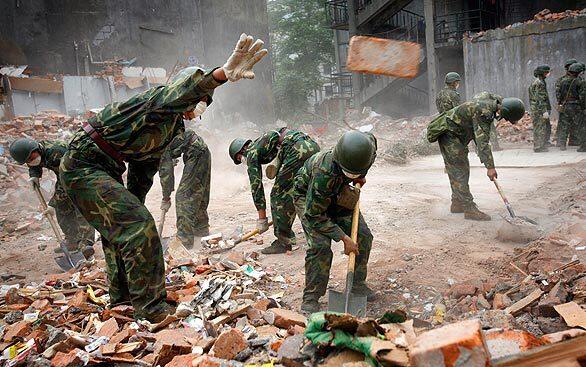
Chinese soldiers clear rubble in the earthquake-hit township of Hanwang in Mianzhu city, north of Chengdu in Sichuan province. (Barbara Davidson / Los Angeles Times)
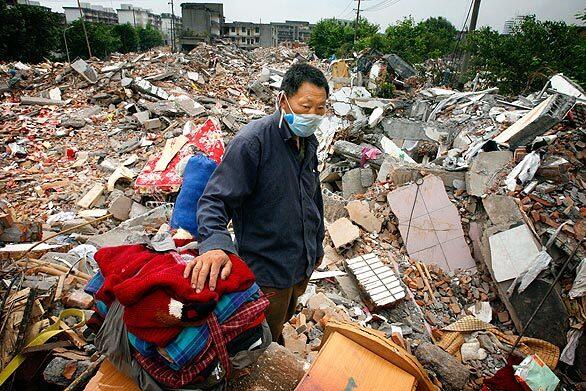
An earthquake survivor delicately folds what clothes he can find from his destroyed home in the quake-hit township of Hanwang in Mianzhu city, north of Chengdu in Sichuan province. In addition to problems associated with a reported 5 million homeless, the emotional scares, the invisible ones, can last much longer as a nation tries to dig itself out and deal with the trauma of loss. (Barbara Davidson / Los Angeles Times)
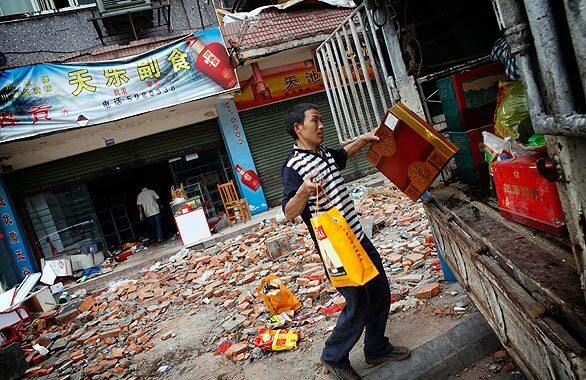
Earthquake survivors retrieve belongings from a shop and place them into a truck in the quake-hit township of Hanwang in Mianzhu city, north of Chengdu in Sichuan province. (Barbara Davidson / Los Angeles Times)
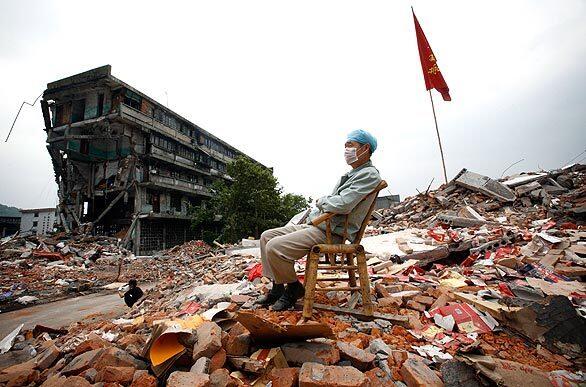
Sitting on a wooden chair in a pile of rubble, an earthquake survivor spends his time looking at his damaged home across the street in the township of Hanwang in Sichuan province. (Barbara Davidson / Los Angeles Times)
Advertisement
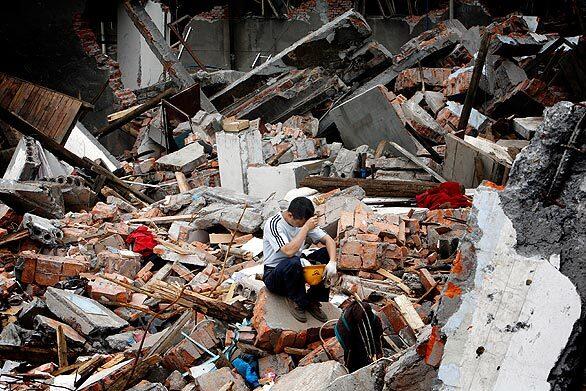
A man observes a moment of silence in the earthquake-hit township of Hanwang during the nation’s official mourning period. (Barbara Davidson / Los Angeles Times)
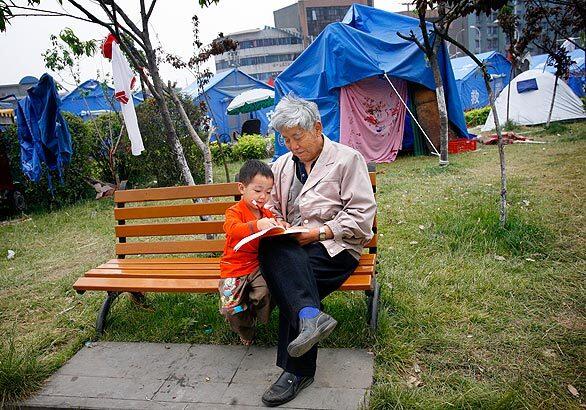
Earthquake survivors read a book together in an evacuee tent center in the township of Hanwang. (Barbara Davidson / Los Angeles Times)
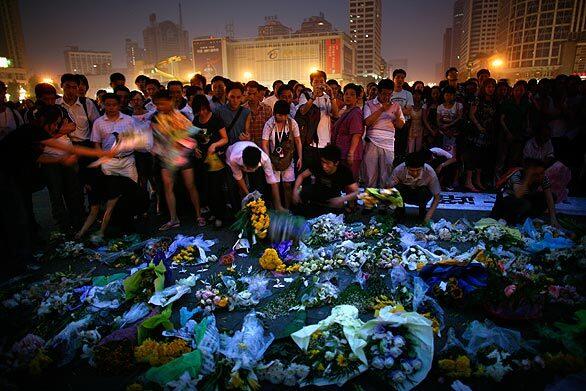
People place flowers and light candles in memory of earthquake victims at the People’s Square in Chengdu, Sichuan province. (Barbara Davidson / Los Angeles Times)
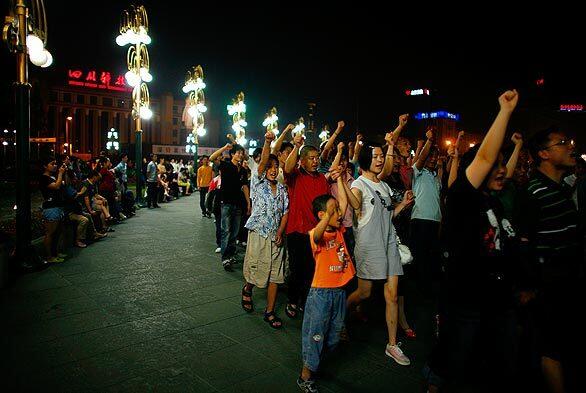
People chant national slogans to keep the country strong at the People’s Square in Chengdu, Sichuan province. (Barbara Davidson / Los Angeles Times)
Advertisement
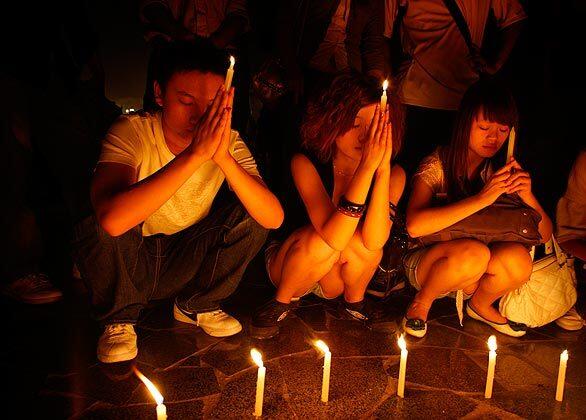
People hold candles in memory of earthquake victims at the People’s Square in Chengdu, Sichuan province. Streets were eerily empty as many shops shut their doors in response to a government call for three days of public mourning. (Barbara Davidson / Los Angeles Times)
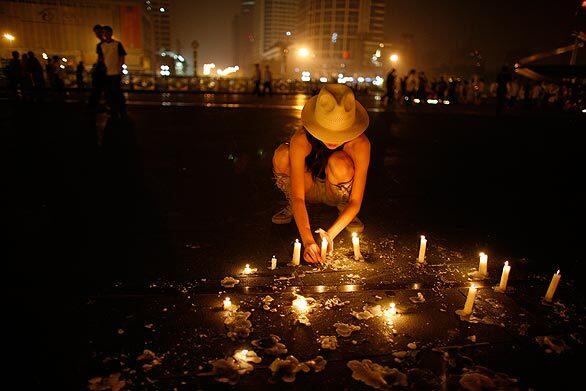
A mourner leaves a candle in memory of earthquake victims at the People’s Square in Chengdu, Sichuan province. Streets were eerily empty as many shops shut their doors in response to a government call for three days of public mourning. (Barbara Davidson / Los Angeles Times)
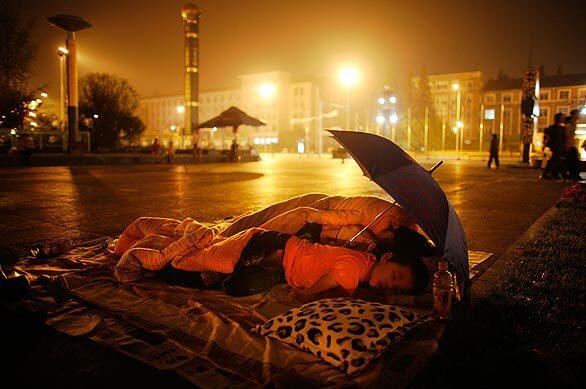
Those left homeless by the earthquake sleep in People’s Square in Chengdu. (Barbara Davidson / Los Angeles Times)
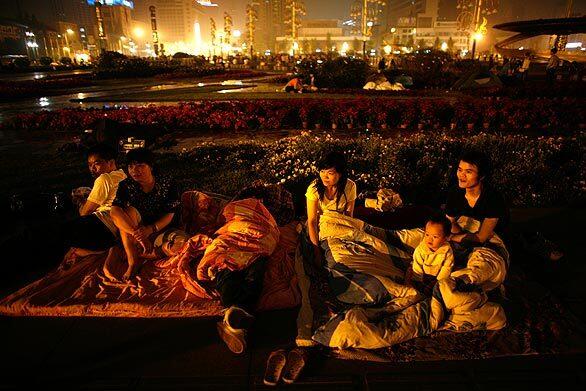
Residents choose to sleep outside in the main square in Chengdu, China. Many residents left their homes after new warnings of possible strong aftershocks. (Barbara Davidson / Los Angeles Times)
Advertisement
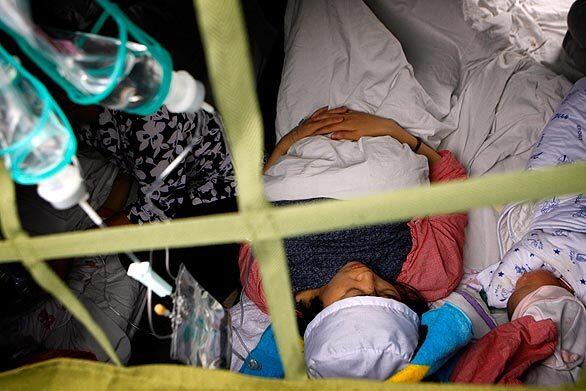
A maternity hospital has set up a tent camp in the middle of a busy intersection in downtown Chengdu as a safety measure. Warnings of severe aftershocks for the next few days have forced many to camp out in the streets of downtown Chengdu, fearing that weakened buildings may collapse from more tremors. (Barbara Davidson / Los Angeles Times)
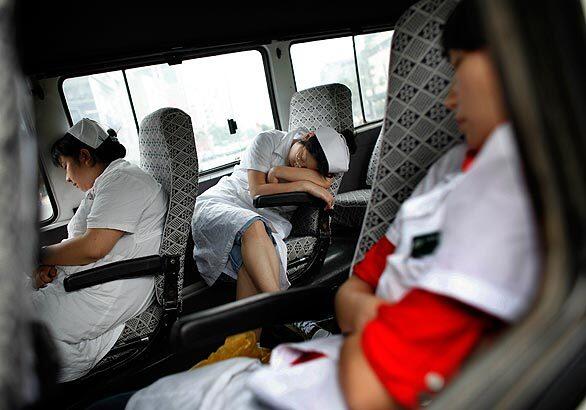
Exhausted nurses sleep in a parked bus where a maternity hospital set up a tent camp in the middle of a busy intersection in downtown Chengdu. (Barbara Davidson / Los Angeles Times)
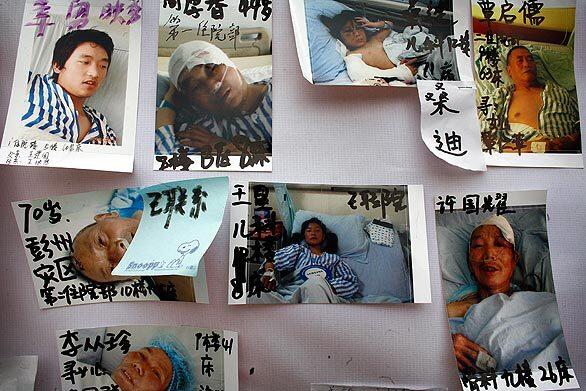
Photos of injured earthquake victims are posted at a downtown hospital in Chengdu, China, so their families can find them. (Barbara Davidson / Los Angeles Times)
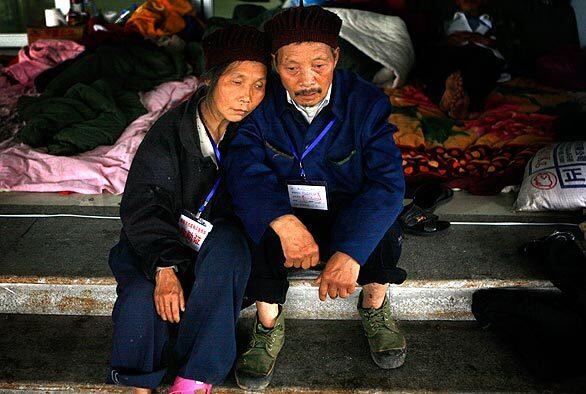
Wu Guangfen, 65,and Deng Jiacheng, 68, married for 40 years, were forced to leave their small village for the first time in their lives by the earthquake. They are seeking shelter at the stadium in Mianyan. (Barbara Davidson / Los Angeles Times)







